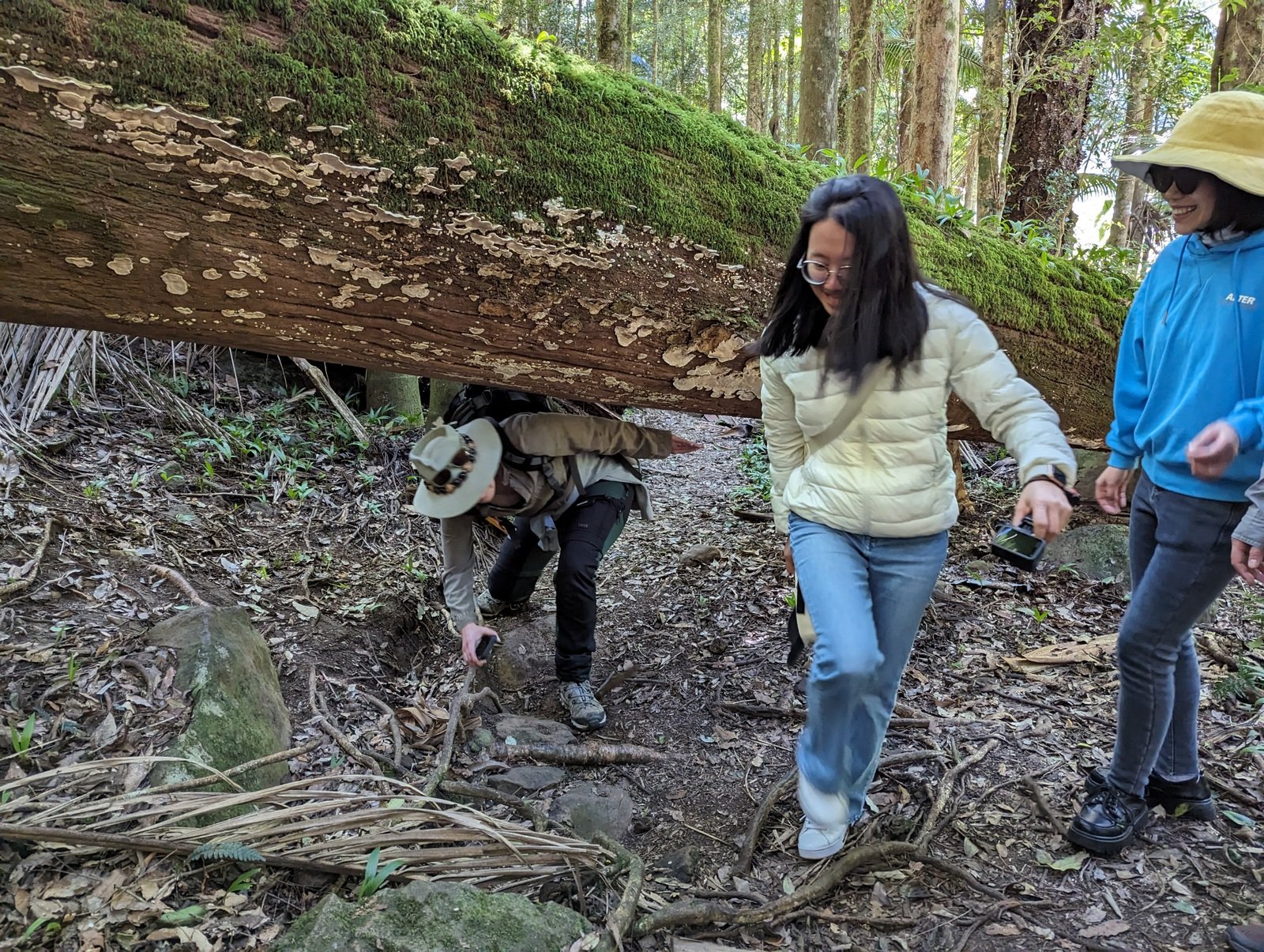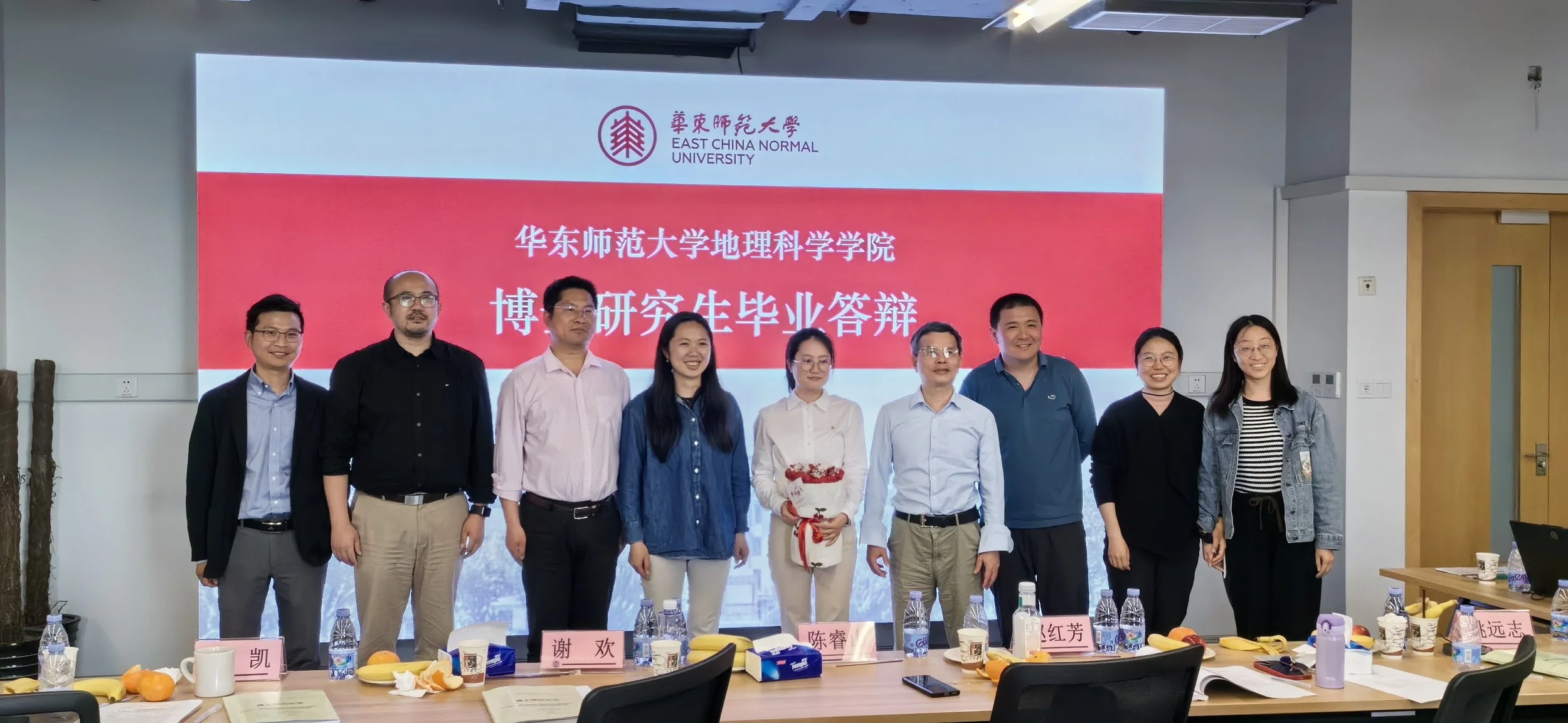Congratulations Xiaojuan!
Xiaojuan navigating a tricky obstacle during our lab retreat in Lamington National Park in July 2023
We are delighted and proud to share the happy news that Xiaojuan Lui has successfully defended her PhD! During 2023, Xiaojuan was a visiting student in our lab from East China Normal University, and we very much enjoyed hosting her here at UQ. Xiaojuan’s visit was funded by the China Scholarship Council, and she was a very active and valued presence in our lab - thanks for coming Xiaojuan, and very well done!
Among other things, Xiaojuan has been studying the environmental impact of cities, and what we can do to reduce those impacts.
With work that has implications all around the world, Xiaojuan discovered that the ecological footprint of many Chinese cities extends well beyond their borders, for example when they import food that is grown in the hinterland of another city, sometimes on the other side of China and in a much more biodiverse location. This is a phenomenon known as “telecoupling”. For example, food consumed in a particular city might have been grown in a faraway city where agricultural expansion is threatening globally important biodiversity. The consumers in the city where the consumption happens are “exporting” their biodiversity impact to another city.
Predictably, some cities had much greater impact than others, but intriguingly the overall ecological footprint of cities appears to be reducing over time. This is because the mix of goods and services used by the cities is gradually changing towards those that have a lower impact on biodiversity.
In another study, Xiaojuan studied 193 Chinese cities, and showed that the green spaces within those cities had much lower vegetation productivity (amount of plant growth) but much higher seasonality than surrounding natural environments, suggesting we need to a better job of managing urban green spaces in a way that supports biodiversity, but also highlighting that urban green spaces can be important havens for nature.
With urban expansion projected to continue to increase in China as a result of rural-urban migration, Xiaojuan’s work helps us plan how to achieve that growth while minimising harm to biodiversity.
The happy day! Present in the photo (from left to right): Guohua Hu (Associate professor, East China Normal University); Kai Cao (Professor, East China Normal University); Ruishan Chen (Professor, Shanghai Jiao Tong University); Huan Xie (Professor, Tongji University); the successful candidate herself; Xia Li (Professor, East Normal University, my advisor); Yuanzhi Yao (Professor, East China Normal University); Hongfang Zhao (Professor, East China Normal University); Yuxia Wang (Associate professor, East China Normal University).

